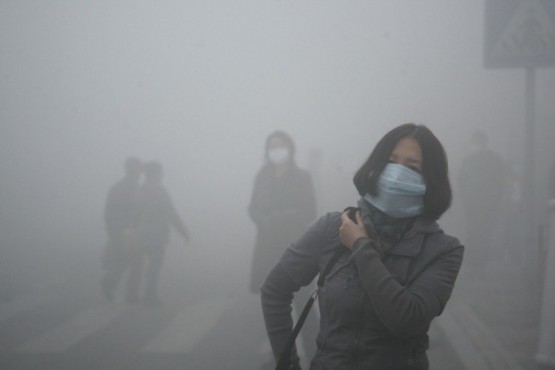As it repositions itself as a potential leader in the global fight against climate change in response to the election of Donald Trump, the Chinese government has announced plans to invest $360 billion in renewable energy sources by 2020. But with another toxic wave of pollution inundating China’s cities this winter, some question whether China’s lack of transparency in reporting data will hinder its efforts to become a climate leader and promote the goals of the Paris Agreement. Edward Wong reports for The New York Times:
At a summit meeting in Marrakesh, Morocco, in November, officials discussed a plan to establish standards and mechanisms for reporting emissions. Over the next two years, negotiators will engage in “the most technically complex and politically contentious issues,” said Li Shuo, a Beijing-based climate policy analyst at Greenpeace East Asia.
China, he said, “still has a long way to improve its transparency system.”
[…] Another problem is that China has been reluctant to release its own calculations of emissions, so other nations rely on calculations made by foreign scientists.
The Chinese government has submitted emissions estimates to the United Nations only twice, for 1994 and 2005. Most other developing nations have also submitted only two estimates, but some, including Brazil and Mexico, have submitted three or more.
There is “no good reason” China is dragging its feet, said Mr. Li, the Greenpeace analyst. [Source]
Data and news about air pollution is frequently censored inside China while the government also disallows international monitoring of its air quality. A popular app, Air Matters, which tracks air pollution levels, has been ordered by authorities to cap its reports at a certain number. The app was previously ordered not to use data provided by the U.S. Embassy in Beijing. Wang Lianzhang of Sixth Tone reports:
Wang said that Air Matters had updated its app on Jan. 4 — a day before the phone call — to allow its AQI reading to go above this official cutoff point. “Our users wanted to know more about the exact number,” he said.
The update came after a weekslong spell of heavy air pollution affecting large parts of China. In late December, the AQI for some cities in the country’s north stood at 500 for days at a time. With local governments facing pressure from citizens to clear the skies, air pollution data is sensitive information.
“The next day [after the update], one of China’s provincial environment protection bureaus called and asked us to set the maximum numerical value back,” Wang said. Though he would not give the name of the province, he implied that it was one of the most polluted in China. They reverted the update after the phone call. [Source]
Meanwhile, Beijing authorities have announced plans to “police” air pollution by focusing on such offenders as barbecues. From Al Jazeera:
China has announced plans to set up an “environmental police” force responsible for enforcing pollution restrictions across the capital Beijing in a bid to improve the city’s notorious air quality.
Cai Qi, who is both the deputy chief of the country’s ruling party and mayor of Beijing, promised to impose tougher measures in the city’s 16 districts to combat a long-standing and widespread toxic smog problem that has brought “harm” to people’s lives.
“Open-air barbecues, garbage incineration, biomass burning, dust from roads – these acts of non-compliance with regulations are actually the result of lax supervision and weak law enforcement,” Cai was quoted by the Xinuhua news agency as saying. [Source]
See also “The Age of Smog” by Tang Yinghong translated by CDT.








